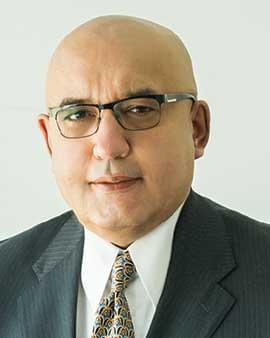
Every self-employed Canadian with an unincorporated business must file an individual tax return each year and report their income as business or professional income.
Self-employed taxpayers can deduct most expenses that are incurred to earn business income, as long as the expenses are reasonable. For some expenses, like meals and entertainment, individuals can claim 50% of the actual amount spent or a determined reasonable amount for the circumstances, whichever is the lower amount. The deductions can include any GST/HST incurred on these expenses less the amount of any input tax credit claimed. However, only the business part of these expenses should be deducted. Personal expenses cannot be deducted from business income.
In addition to deductions on food and entertainment expenses, here are some other tax savings strategies for self-employed Canadians:
Capital property
Self-employed taxpayers can write off capital property costs over time as a form of depreciation called a capital cost allowance (CCA). Different types of property have different CCA rates. For these purposes, capital property includes things like furniture, computer equipment, or a building that was purchased for business use only.
Home office expenses
Self-employed individuals who work from home can deduct a portion of their home office expenses. That percentage is determined by dividing the area of the home office by the total area of the house. Eligible deductible home office expenses include property taxes, mortgage interest, utilities, home insurance, and maintenance costs. If a part of a house is designated as part of a home office, it can only be used for the purpose of business activities. The Canada Revenue Agency (CRA) may also ask home office users to submit a floor plan of their house, upon audit.
Income splitting
Self-employed Canadians can pay family members a reasonable salary towards their contributions for their businesses to save taxes. This strategy works if the self-employed individual is currently earning more than their family members. Those family members in a lower tax bracket can save tax. The first $11,474 dollars of employment income is tax-free.
To substantiate an income splitting claim and refute any challenges made by CRA, an employment agreement should be prepared that specifies the duties that the family members will be performing, as well as their hourly wages or salaries. In addition, a weekly log should be kept to support the time spent working by each family member.
Vehicle expenses
Self-employed business owners can save taxes by leasing a vehicle for their business. The following vehicle operating costs can be deducted for tax purposes: repairs and maintenance, fuel, insurance, toll charges, parking, license and registration fees, lease charges (up to a maximum monthly deduction of $800 plus taxes), and interest on monthly payments if the vehicle has been financed. The business owner can use a capital cost allowance if the vehicle has been purchased out-right.
The percentage of the vehicle operating costs that can be deducted is calculated by dividing the total kilometers driven for business purposes by total kilometers driven in the year. For example, if the vehicle was driven 8,000km for business purposes during the year and 10,000km in total, then 80% of the vehicle operating costs can be deducted. To substantiate the distance driven for business, a daily log must be kept. The daily log should include the date, location, distance in kilometers, and purpose of each trip.
Income tax payment by instalments
Self-employed individual tax returns must be filed by June 15. However, all tax owing must be paid by April 30. If the net tax owed in the current year or either of the two previous years is more than $3,000, payments can be made in quarterly instalments due on March 15, June 15, September 15, and December 15.
For the current tax year, the Canada Revenue Agency (CRA) will send a reminder by mail if instalment payments are required. Interest must be paid on any unpaid instalments. The CRA charges interest compounded daily at the prescribed interest rate, which can change every three months.
Consult Sidhu & Associates Chartered professional accountant with any questions or concerns regarding self-employed income.

